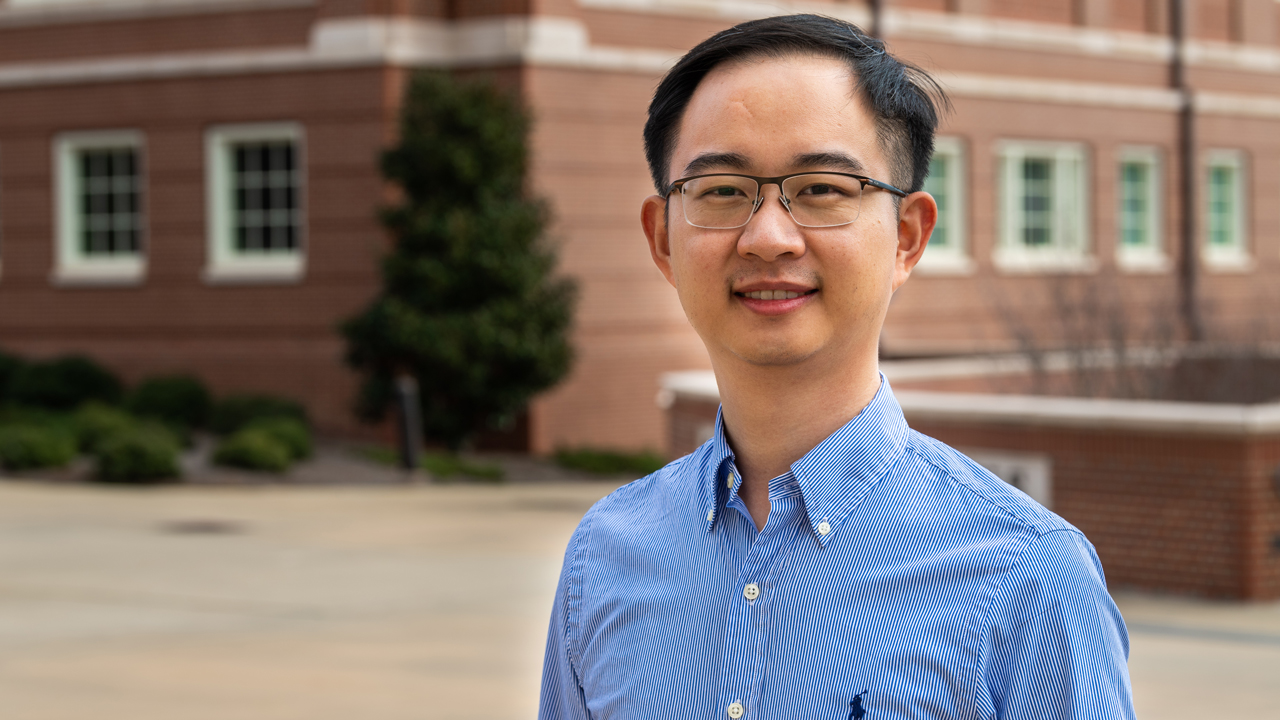Civil and environmental engineering assistant professor receives grant to tackle selenium pollution in water
Published: May 2, 2022 4:05 PM
By Virginia Speirs
Shiqiang (Nick) Zou, assistant professor of civil and environmental engineering, and his research team received a $533,000 share of a $2.5 million grant from the National Alliance for Water Innovation, a Department of Energy water research hub.
The three-year project, “Direct electrochemical reduction of selenium to achieve A-PRIME water treatment,” is led by the Lawrence Berkeley National Lab in California, with three universities receiving subcontracts: Auburn University, Rice University and Stanford University. A-PRIME stands for Autonomous, Precise, Resilient, Intensified, Modular and Electrified water treatment.
The team’s focus will be on harnessing electric power for the purpose of eliminating selenium pollutants from industrial wastewaters and agriculture runoffs, Zou said. Selenium, in excess, can lead to chronic health problems, which is why it needs to be eliminated from water to meet U.S. EPA and World Health Organization regulations.
Currently, there is no reliable and affordable solution to selenium pollution, according to Zou. The limited understanding of the health risks involved with high selenium intake and toxicity has led selenium to be inadequately regulated for over a decade.
“As an environmental engineer, I genuinely want to tackle this emerging environmental issue and help secure clean and safe water for our community,” Zou said.
This project brings together materials scientists, electrochemical scientists and engineers, environmental engineers, industrial manufacturers and end-users to develop and test this new technology. The Auburn team sits in the center and will lead the engineering effort to design electrochemical prototype systems to remove selenium pollutants from wastewaters.
“We are excited to collaborate with Berkeley Lab, Rice and Stanford teams on this project,” Zou said. “Our interdisciplinary research teams expect to develop an electrochemical platform that has the potential to remove selenium from the polluted water and other emerging contaminants in the future. This vision aligns well with the National Alliance of Water Innovation to secure an affordable, energy-efficient and resilient water supply for the U.S. economy.”
Zou has been an Auburn engineering faculty member since 2021. His research interests include electrochemical systems to remove emerging contaminants; membrane separation for wastewater treatment and water reuse; resilient environmental bioprocess for nutrient and energy recovery; thermodynamic and kinetic analysis of engineered systems; and sustainable design of wastewater treatment train.
Media Contact: , cmontgomery@auburn.edu, 334.844.3668
Shiqiang (Nick) Zou

